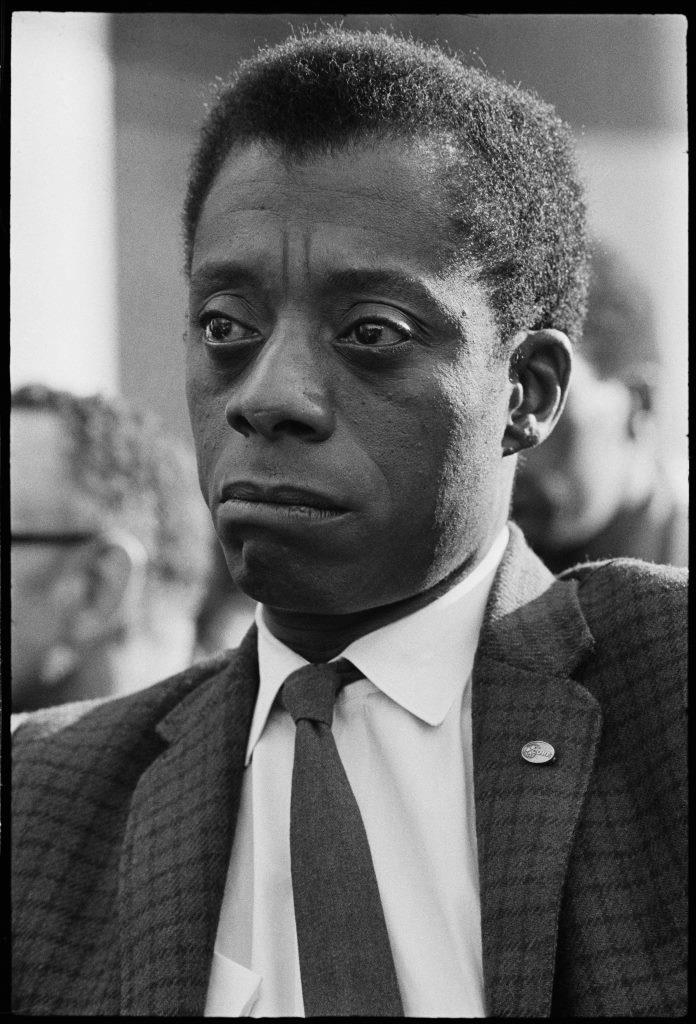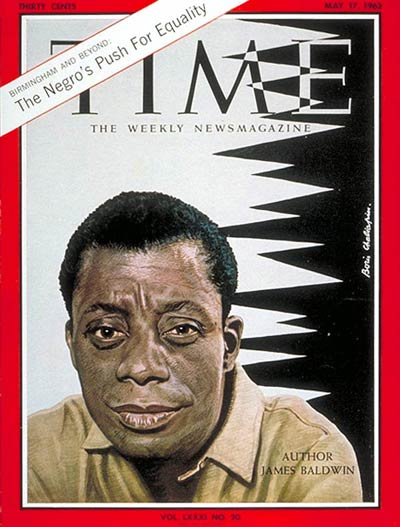
James Baldwin was an American novelist, essayist, playwright, poet, and social critic. Born in Harlem, he loved reading and showed a special talent for writing at an early age. He first published at 21 years old (outside the poems, short stories, and plays he’d published in his high school newspaper), a review of the writer Maxim Gorky that appeared in The Nation. Three years later, as a result of being disillusioned by American prejudice against blacks and gays, he left the United States and settled in Paris, France — “Once I found myself on the other side of the ocean, I see where I came from very clearly…I am the grandson of a slave, and I am a writer. I must deal with both,” Baldwin once told The New York Times.
He published his first novel, Go Tell It On The Mountain, in 1953. His first collection of essays, Notes of a Native Son, was released two years later. Baldwin’s second novel, Giovanni’s Room, caused great controversy when it was first published in 1956 due to its explicit homoerotic content, (Baldwin was open about his homosexuality and relationships with both men and women). His work explored racial and social issues, and was especially well-known for his essays on the black experience in America.
James Baldwin returned to the United States in the summer of 1957 while the Civil Rights Act of that year was being debated in Congress. He interviewed people in North Carolina and Alabama, writing many articles and essays during that time. By way of these and a speaking tour, he became known as an important voice for the movement — which probably explains why his FBI file contains 1,884 pages of documents, collected from 1960 until the early 1970s, an era of illegal surveillance of American writers. Even so, Baldwin himself rejected the label “civil rights activist,” rather seeing his role as bearing “witness to the truth.”

In 1963, James Baldwin was featured on the cover of Time Magazine. The accompanying article said of him, “There is not another writer—white or black—who expresses with such poignancy and abrasiveness the dark realities of the racial ferment in North and South.” In the years before his death, he taught at University of Massachusetts at Amherst and Hampshire College.
Interesting fact: Maya Angelou called Baldwin her “friend and brother,” and credited him for “setting the stage” for her 1969 autobiography I Know Why the Caged Bird Sings, and Baldwin was also a close friend of Nobel Prize-winning novelist Toni Morrison.
I Am Not Your Negro, a documentary about James Baldwin opens in theaters today, February 3.
Today’s CSU Black History Month Event:
- Documentary: 13th 2 PM, B/AACC – LSC335 “2016 American documentary [recently nominated for an Oscar] by director Ava DuVernay. Centered on race in the United States criminal justice system, the film is titled after the Thirteenth Amendment to the United States Constitution, which outlawed slavery (unless as punishment for a crime). DuVernay’s documentary argues that slavery is being effectively perpetuated through mass incarceration.”